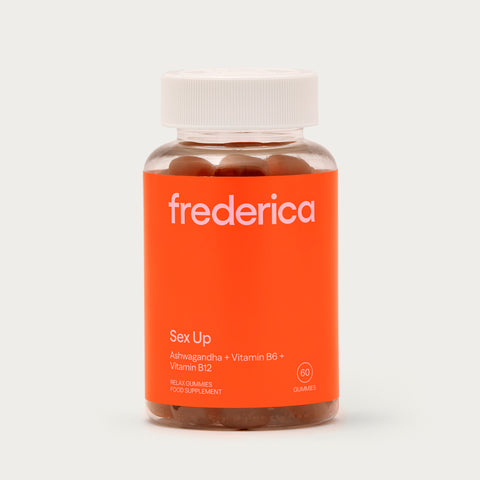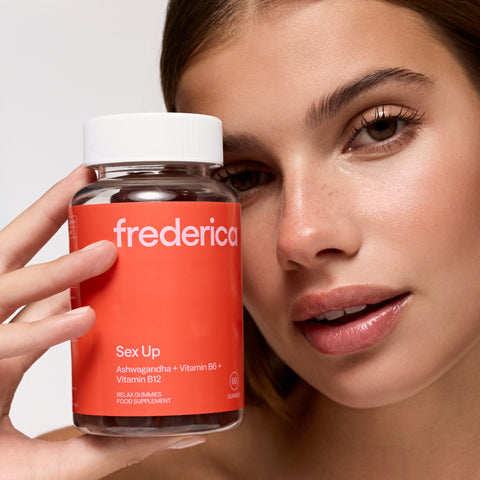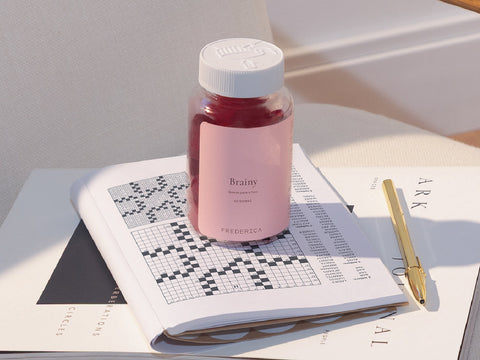Lubricant. Its advent was probably one of the most lauded inventions in intimate matters. Today, there are several variations of this life-saving product, featuring laboratory-tested ingredients capable of pleasing the most peculiar tastes and promising long-lasting lubrication. But were lubricants ever truly capable of all this? Actually, no.
It was in the early 20th century that modern lubricant emerged. Before that, our ancestors were far from using the endless array of commercial products available to us today. Instead, they turned to nature's purest offerings, using substances derived from seeds, fruits, or even leaves. It's said that, for thousands of years, our ancestors used seaweed and olive oil for lubrication. Surprised? Then you can be very thankful that there are so many modern solutions for something so common and important.
In the logic of sex, regardless of what one likes or dislikes, there's a common premise: the more lubrication, the better. Some women suffer from vaginal dryness, but using this magical substance can benefit other issues as well. The advantages are simple: less friction and more smoothness.
According to a study by Indiana University in the United States, 70% of the approximately 2,500 women surveyed said that lubricant made sex much more enjoyable. In heterosexual relationships, it's important to demystify the idea that if a woman doesn't have enough fluids, it's due to a lack of arousal from the man. It's recommended that lubricant be viewed as a facilitator of a process that sometimes doesn't happen as "wetly" as expected.
What types of lubricant are available on the market?
There are water-, silicone-, or oil-based lubricants. Then there are versions that contain a combination of these ingredients (hybrids), which usually contain both water and silicone.
When it comes to water-based lubricants , the key is versatility. This is because they can be used in almost any sexual activity and are also safe to use with condoms.
One of the most popular types of lubricant is one that respects and balances the vagina's pH, while reducing friction, avoiding staining sheets, and being easily absorbed by the skin. Water-based lubricants are the most common, and may or may not contain glycerin. Those that don't contain glycerin are the best for vaginal health and have the longest shelf life.
For very sensitive skin, it makes more sense to use a silicone-based lubricant , as it is hypoallergenic. If the goal is to experience longer-lasting sex, this variant may be the best option, as it lasts longer on the skin and requires less frequent reapplication. The downside of silicone is that it can damage some sex toys, also made with this material, making them much less hygienic. Another advantage? It can be used with condoms.
Oil-based lubricants, on the other hand, are ideal for those who don't want to worry about frequent application. They work well during massages and can be the perfect addition to any occasion. However, this type of lubricant should not be used with latex condoms, as they can increase the likelihood of tearing—as all oils do. Another problem associated with oil is the increased risk of contracting vaginal infections, as well as the fact that it can stain clothes and sheets, creating difficult-to-remove stains.
Recently, natural lubricants have also emerged. As the name suggests, they contain ingredients of natural origin, making them perfect for those concerned about the ingredients they put in contact with one of the most sensitive areas of our body. These products are generally odorless and tasteless.
The importance of using lubricant during painful sex
While some women may feel uncomfortable talking about pain during penetrative sex, it's important to seek medical advice to identify the cause of the problem and treat it effectively.
Applying lubricant before sex can help relieve pain, as it gently moisturizes delicate tissues. Lubrication is a crucial part of the physical arousal process, and additional help is often needed to enjoy stimulation of the vulvar area, including the clitoris and vagina.
Using lubricant reduces vaginal friction, increasing comfort during sex and minimizing any pain or irritation. However, vaginal dryness is a very common sexual problem that should be treated appropriately.
Is there a right way to lubricate?
There's no single "correct" way to use lubricant. However, it's known that if your body hasn't yet received the message that it's time to start lubricating, that's the time to start applying this product. Even if you have sufficient natural lubrication, you can use this extra help wherever you need it and in whatever quantity you like. It's recommended that you increase the temperature of the lubricant with your hands so that it's not too cold when applied to intimate areas.
As a general rule, paraben-free, glycerin-free, and petroleum-free lubricants minimize the risk of infections, making them an even smarter choice.
Even though a woman may experience natural lubrication when sexually aroused, the truth is that this isn't always the case. Sexual intercourse without lubricant can be painful and can damage the vaginal lining, so it's crucial to try to counteract hormonal or other factors that prevent adequate lubrication. Using a product suited to your needs will benefit the entire relationship, increasing arousal and pleasure, keeping the vaginal skin softer, and reducing friction during penetration.
The first step is to understand what type of lubricant will make the most sense for you, as well as how to get the most out of it. There are lubricants specifically designed to enhance sexual arousal. These are the best options for trying something different with your partner.
To make this whole process easier, even though there is no fixed formula for lubrication, there are some simple gestures you can consider, namely:
- Use lubricant during foreplay;
- Place a towel to avoid staining the bed linen;
- Apply lubricant immediately before penetration;
- Reapply whenever necessary.
Not all vaginal lubricants have the same characteristics.
We're all different, and for that reason, we all have different needs and reactions. Lubricants with a "warming" function may not be the best option, as they can quickly dry out the skin, thanks to the presence of glycerin. In cases where vaginal lubrication isn't sufficient, it makes sense to opt for a silicone-based lubricant to prolong the moment.
If you frequently suffer from fungal infections, there is one mandatory rule: avoid lubricants that contain glycerin in their composition and avoid aromas or fragrances that often cause irritation.
On the other hand, if you are trying to get pregnant, make sure you choose a sperm-friendly product.

































